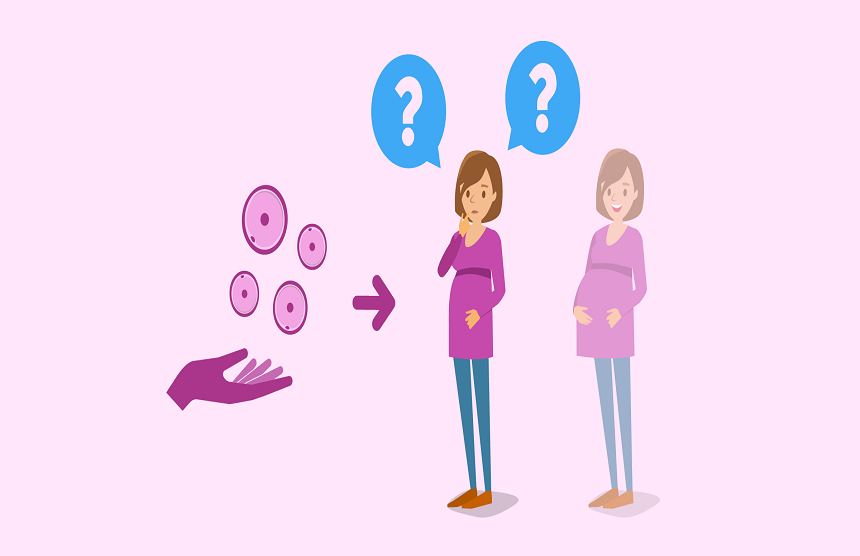How Many Eggs Does A Woman Produce During Ivf
during eggs produceIf the ovarian reserve has a respectable number of eggs one shot of hormones can produce a minimum of fifteen and a maximum of twenty eggs. IVF procedures require ovulation of multiple eggs.
A dozen eggs might be just the right amount to buy at the grocery store but when harvesting human eggs for in vitro.

How many eggs does a woman produce during ivf. All these can be used for IVF. Most patients naively expect that if the doctor retrieves 10 eggs all 10 will fertilize and form embryos in the IVF lab. What is it about their eggs that cause all these problems.
How Do I Know How Many Eggs I Have Right Now. Practically all women doing IVF are taking supplements of one sort or another. The study indicated that to produce 1 and 2 euploid embryos 5 and 14 oocytes would be required at age 34.
After the first ever menstrual period women release an egg per month and it is estimated that only 400-500 will be ovulated during their reproductive years. IVF does not give you a 100 percent chance for pregnancy says Dr. Oftentimes due to a varied set of causes the ovarian response of some patients is inadequate and the number of eggs collected is too low below 5.
Human reproduction is not very efficient and there is a lot of wastage in the process. But just as some women look younger than their years womens eggs decline at different rates too. For IVF it is enough with 1 or 2.
Would the eggs from PRP be any different. An average of 10 20 eggs are usually retrieved for IVF. As a fetus early in development a female has around a whopping 6 million eggs.
While it is possible that the PRP may improve the quality of these eggs to the point where they can result in a healthy baby it is just as likely if not more so that they they will not. 15 to 30 is considered a good number. Hence the older a woman is the more eggs have to be retrieved in order to increase the chance of obtaining an additional chromosomally normal euploid embryo.
One technician may count 5 while another might see 6 or 7. Aimee Eyvazzadeh an OB-GYN and fertility expert from San Ramon California. Lets look at the process of fertilization in more detail to understand why.
The number of eggs required depend on the technique used. As a general guideline however antral follicle counts can be used to help determine the likelihood of success for ovarian stimulation and IVF and may also be used to guide dosing for fertility medications. The main explanation for this is that women are born with a finite number of eggs and from that moment onwards the number of eggs is declining all the time until women go through their menopause at around 50-51.
Also if you have a large number of eggs that do become fertilized embryos you can freeze them for use later. If the ovarian reserve is low the same shot can produce only six or only eight eggs that can be used for IVF. Nonetheless women in their 40s do still ovulate each month.
It is not uncommon for women in above 45 to produce enough eggs to do IVF but it is uncommon that any are good enough to result in a healthy pregnancy. There are women in their 30s who have few eggs left and women in their 40s who are still ovulating regularly. However 10 and 24 oocytes would be required at age 38.
The chances of pregnancy will depend on the age of a womans eggs and many other factors particular to a couple but on average only 37 percent of assisted reproduction cycles for women under. However this is not true. Much of the reason that fertility declines with age has to do with the state of a womans eggs.
A womans ovarian reserve is defined as the supply of egg that she has depending on age. Thus it all depends on the ovarian reserve. Normally a womans ovaries produce one egg every month.
The rest will degenerate eventually. These are supposed to improve egg yield egg quality and embryo implantation thus helping to improve IVF pregnancy rates. Unfortunately there is no foolproof way to know exactly how many eggs you have or how good they are.
The likelihood of childbirth after in vitro fertilization IVF treatment increases if 18 to 20 eggs are stimulated to mature in a womans ovaries new research shows. Even if ovulation is normal fertility drugs are used to produce more than a single egg because pregnancy rates are higher with more eggs. I have come across women who take over 10 different supplements daily - and I wonder.
Ovarian reserve by age chart. But with IVF many eggs are necessary because not all eggs will become fertilized. That is more eggs than the.
The number of these eggs oocytes to be precise is steadily reduced so that when a baby girl is born she has. In this way IVF allows women to produce upwards of 100 eggs each month of course that is an ideal situation and IVF typically only yields 5-30 mature eggs. For Successful In Vitro Fertilization Women Should Harvest 15 Eggs.
However not all of them are viable to use as on average only about two-thirds have the appropriate maturity. Whilst for IVFICSI we should have around 10 eggs ideally.


